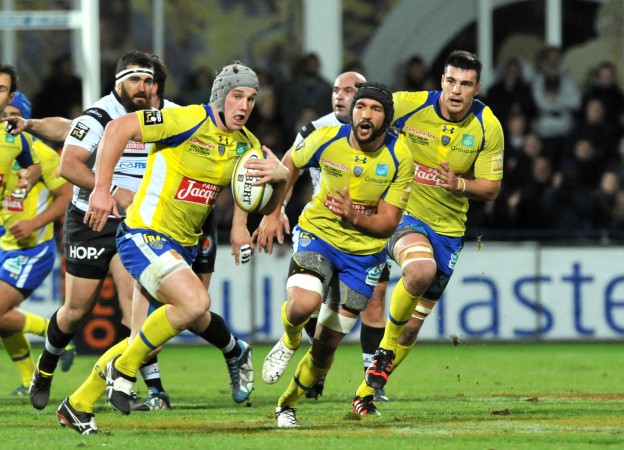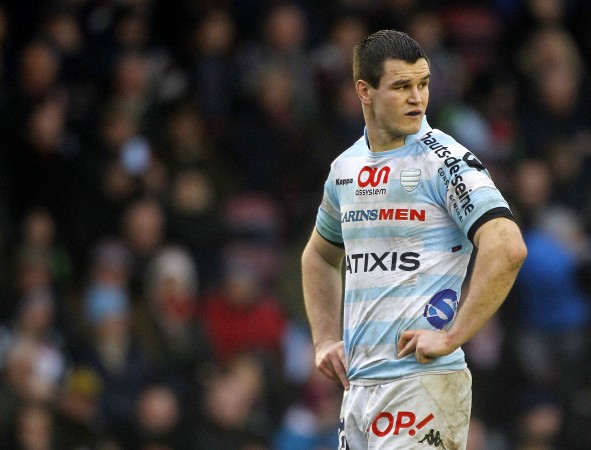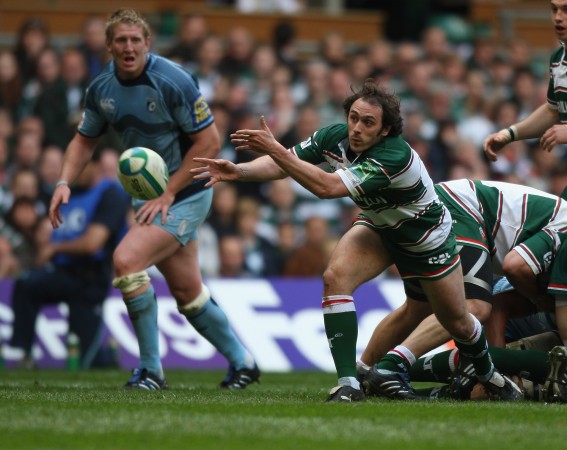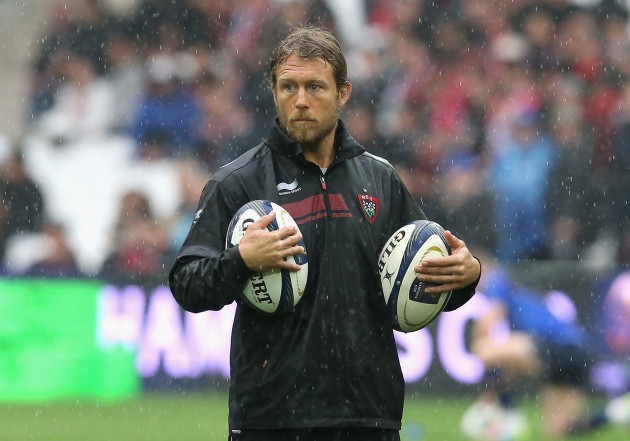With Jonathan Davies the latest big-name star to confirm he is coming home, RW ponders why so many struggle to settle in France
So Jonathan Davies is the latest player to fall short in France. The 27-year-old centre announced last week that he’ll be rejoining the Scarlets next summer, declining to take up his option of a third year at Clermont. It’s not surprise. Davies has made just 16 starts for the Auvergne club in 15 months, his opportunities restricted by a serious knee injury and competition for places in a squad containing Wesley Fofana, Benson Stanley and Aurelien Rougerie.
Davies joins a long list of British and Irish players who discovered that the Top 14 wasn’t to their taste. One of the first was former Wales fly-half Arwel Thomas, who famously complained of his short-lived spell at Pau in 2003, that “shops don’t open maybe at 9am, so you have to plan your breakfasts a bit better”.
Since then a starting XV of stars have fled France for various reasons, from Riki Flutey to Olly Barkley to Gethin Jenkins to Jim Hamilton. Not forgetting, of course, the triumvirate of Dan Lydiate, Jonathan Sexton and Jamie Roberts, none of whom flourished at Racing 92.
But why is it that so many talented players are unable to reproduce in France the rugby that prompted a Top 14 club to come calling?
The style of rugby is a factor but in most cases it’s what happens off the pitch that’s decisive. The first point to make is while these men are elite athletes they are still human beings, subject to the same emotions as the rest of us. Some people are self-sufficient and adaptable, others need to be surrounded by the familiar, be it a face or a place. Some are stimulated by a new environment, others shrink from it.
Jonathan Sexton never made any secret of the fact he was homesick in Paris. Frequent returns to Dublin on international duty didn’t help the fly-half settle; if anything it exacerbated his feeling of isolation, reminding him of what he was missing. The same went for Wales flanker Dan Lydiate.
It’s a different psychology for the dozens of Aussies, South Africans and Pacific Islanders in France. They are thousands of miles from their homes with none of the tempting opportunities to nip back to see family and friends on a free weekend . Additionally, when they arrive in France, it’s not just for the rugby but also for the life experience. After all, they’re not only in a different country but a different continent, one they may never return to after the playing days are over. So they are determined to get the most they can from France, sportingly and culturally.
Sexton had his wife with him in Paris but many players – like Davies at Clermont – arrive in France alone. That’s a daunting challenge for anyone, as Julien Dupuy explained last week in an interview with Midi Olympique. The Stade Francais scrum-half joined Leicester in 2008 as a raw 24-year-old and though he was a success on the field, off it he struggled in his alien surroundings.
“Leicester was an important phase for me,” he explained to the newspaper. “It’s there I constructed part of my career as a player but above all, where I constructed my life as a man…certain evenings were long. Very long. I sometimes felt alone. But it forged my character. I was obliged to go towards others, to force myself to make the efforts to understand.”
Fans see their heroes only on match day when it’s hard to imagine that a player, amid an afternoon of raucous applause, might ever be lonely. But professional players spend a lot of the week away from the training ground and their teammates. As Dupuy discovered it can be hard to fill those long hours if you’re by yourself in a foreign country and an incomprehensible language.
Unquestionably the players who make an effort to integrate are the most likely to succeed in France. As the former Scotland wing Tony Stanger admitted in 2001, shortly after his return from an ill-fated season in Grenoble: “Communication can be a problem, especially if you don’t speak French.”
Part of that comes down to personality. The more outgoing the player the more likely he’ll want to engage with the locals. Trevor Brennan, Jamie Noon and Iain Balshaw are three examples of players who got on so well with the French they settled in the country after retirement.
But application is also important. A good number of players who failed in France did so because they were either too lazy or too proud to learn French. Learning any language requires humility and one must be prepared for the odd pratfall. So what if the locals give the odd giggle? Hand in hand with the amusement is respect.
Of course, the British player who’s been the biggest success in France was no extrovert. But Jonny Wilkinson was intelligent, open-minded and fully committed to the club he was joining. “You want to go somewhere and have the opportunity to make a difference,” he once said of his decision to join Toulon. “You have to make a decision when you go there how much you will embrace the culture and the language.
You can choose to have the whole experience and get the very best out of it or you decide to go there and hang in. Some people have gone there and not enjoyed it because they haven’t understood what was needed on the field.”
Wilkinson made those comments in 2011, in response to the news that another superstar was on his way to Toulon. It was Gavin Henson, and he lasted barely four months. To quote Arwel Thomas: “It takes a certain type of person to go out there to France and be successful.”









